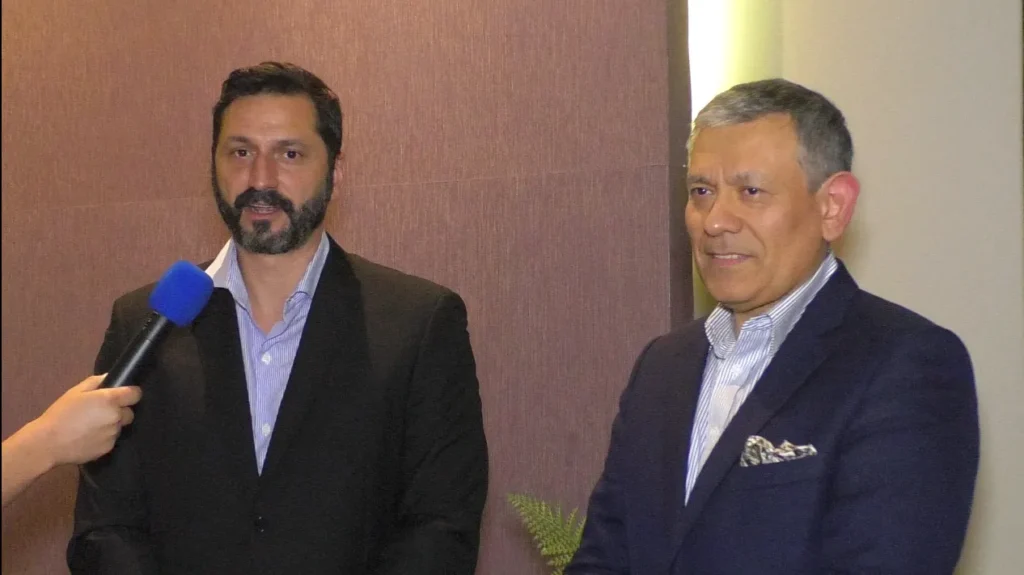During the regional conference of the Latin American Society of Marine Oil and Monobuoy Terminal Operators (SLOM), held in Panama, an intense day of simulation focused on human preparedness for environmental emergencies took place. The exercise was designed and facilitated by Oil Spill Response Ltd (OSRL), an international organization specialized in oil spills management.
The exercise was based on a simulated scenario: the spill of 150 cubic meters of grade three oil in waters near a national park in Peru. Although it was a simulation, the participants (all operational leaders of Latin American marine terminals) took the challenge seriously, reflecting a deep sense of responsibility and technical commitment in their decisions.
As explained by Gonzalo Mera Truffini, vice president of SLOM, the focus of the day was on the human factor, aligned with the theme of this year's event. "The people participating here are leaders at their terminals and showed a high level of commitment to preparedness. No one wants an incident to happen, but we can't predict what will happen. The only way to be ready is to train and strengthen our capabilities," he said.
For his part, Jorge Pilay, Manager of Preparedness and Response for the Americas at OSRL, highlighted the richness of the exercise from an analytical point of view. "It was impressive to see how the teams debated their decisions with solid arguments. Intense discussions were generated, very focused on prioritizing values such as human life, environmental protection and communication management before the press," he said.

Throughout the day, participants were faced with difficult decisions: What should be protected first: wildlife, economic resources or the integrity of people? For OSRL, the answer is clear. "The number one priority will always be human beings. Then comes everything else," Pilay said.
One of the most valued aspects was the opportunity to observe real reactions to simulated scenarios. The mix of stress, analysis and leadership reinforced the underlying objective: peacetime preparedness. As the OSRL representative stated, it is in training that the responses that can later save lives, prevent catastrophes and protect ecosystems are sown.
From the point of view of both organizations, this type of exercise is necessary and strategic; preparing leaders to respond with clarity and judgment in the event of a spill is an investment that reduces risks and strengthens the reaction capacity of the entire region.
The SLOM conference continues over the next few days, with more activities focused on safety, sustainability and professional training. For its part, OSRL reaffirms its commitment to the region, offering high-level technical training and strengthening key partnerships for environmental response in Latin America.
For more content about SLOM 2025, please visit our YouTube channel and our LinkedIn profile.
Source: Inspenet.